Scotland falls silent for Remembrance Sunday
- Published
Sombre reflection as people around Scotland fall silent on Remembrance Sunday
People around Scotland have paused to remember those who have made the ultimate sacrifice.
Thousands fell silent for two minutes of sombre reflection at 11:00 on Remembrance Sunday.
In Edinburgh, hundreds of people gathered for the service of remembrance outside the city chambers on the Royal Mile.
Among them was 101-year-old Jack Ransom, a World War Two veteran, who was captured by the Japanese in 1942.
As a prisoner, he was forced to work on the Burma "death" Railway connecting Thailand and modern day Myanmar.
Thousands of allied prisoners of war died during its construction. "I was lucky to survive," Mr Ransom told BBC Scotland.
"I believe the connection between all of us is the poppy. The poppy is essential. With the poppy every year you remember. You remember your comrades," he added.
He wore his own service medals and those of his father and uncle who served in World War One to lay a wreath at the Stone of Remembrance.
Mr Ransom was named after his uncle - his father's youngest brother - who was killed at Avignon in France in March 1918.
"My paternal grandmother always thought that the tomb of the unknown soldier in Westminster Abbey represented the son she lost," said Mr Ransom, who was born in London but now lives in Ayrshire.
"Whenever she saw me she cried because she saw in me, her grandson, her son."
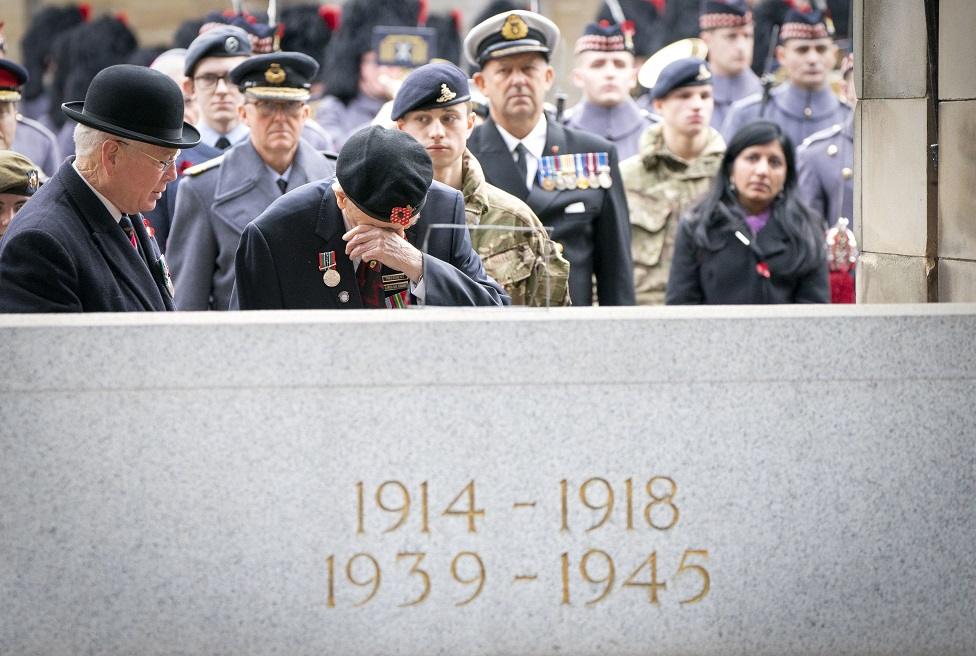
World War Two veteran Jack Ransom took part in the service at the Stone of Remembrance
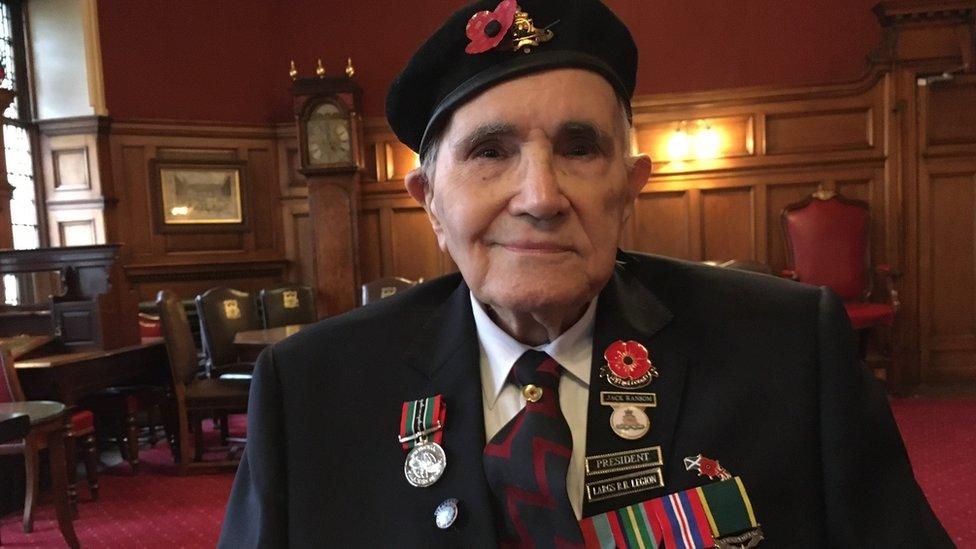
HE worked on the Burma Railway as a prisoner of war during World War Two
First Minister Nicola Sturgeon and Alister Jack, the Scottish Secretary, were among dignitaries who took in proceedings to honour those who have fought and died in past conflicts.
Similar events took place around the country after they were cancelled due to the coronavirus pandemic last year.
It came on the 100th anniversary of the poppy as a national symbol of remembrance.
PoppyScotland, which runs the Scottish Poppy Appeal, said there was a 28% drop in donations last year as they were unable to do face-to-face collections.
The charity has had a "wonderful response" for its centenary appeal this year, head of fundraising Gordon Michie said.
"It has been especially pleasing to see such determination from our volunteers to get back to face-to-face collections again, after so many were forced to stay at home last year because of the pandemic," he added.
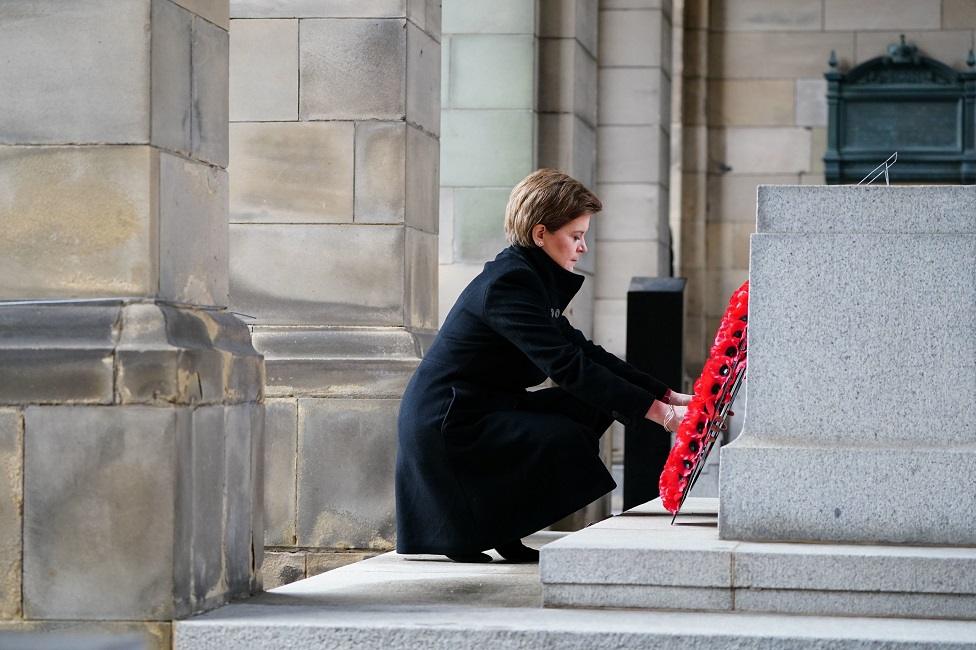
First Minister Nicola Sturgeon was among those laying wreaths
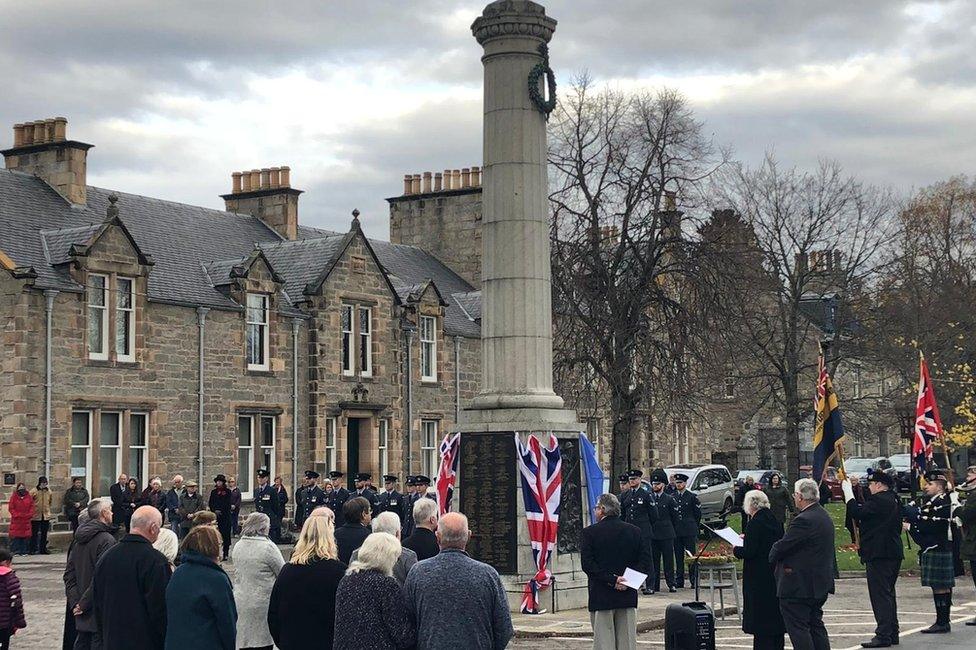
Crowds gathered at the war memorial in Grantown-on-Spey in the Highlands
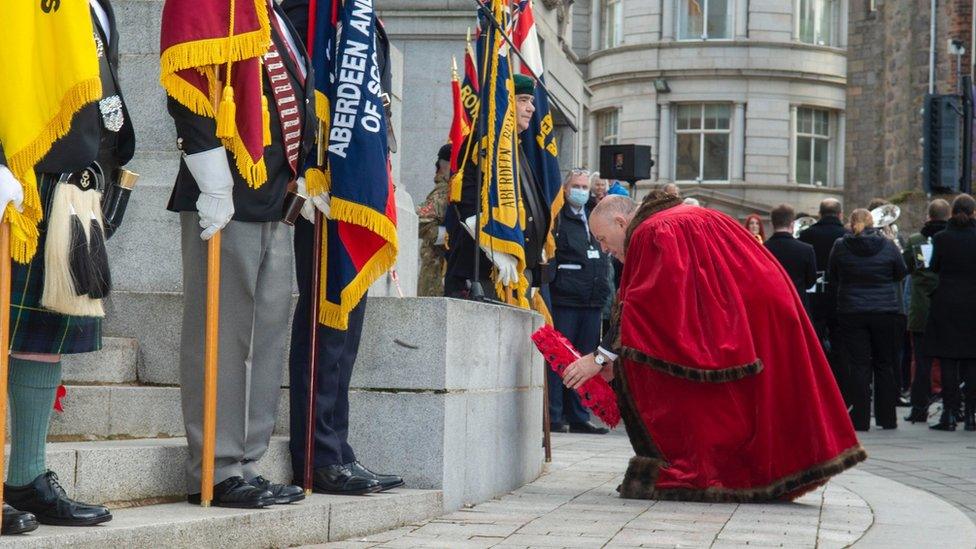
The war memorial in Aberdeen was also the focus of a remembrance service
Elsewhere, a special ceremony in Northesk Parish Church in Musselburgh, East Lothian, remembered Helen Burnett Wood, a local nurse who was killed in 1917.
Born in 1888, Helen emigrated to Illinois in 1909, when she was 21, and worked as a telephone operator before training to be a nurse.
She volunteered to serve with US Base Hospital Number 12 and was deployed to France in May 1917.
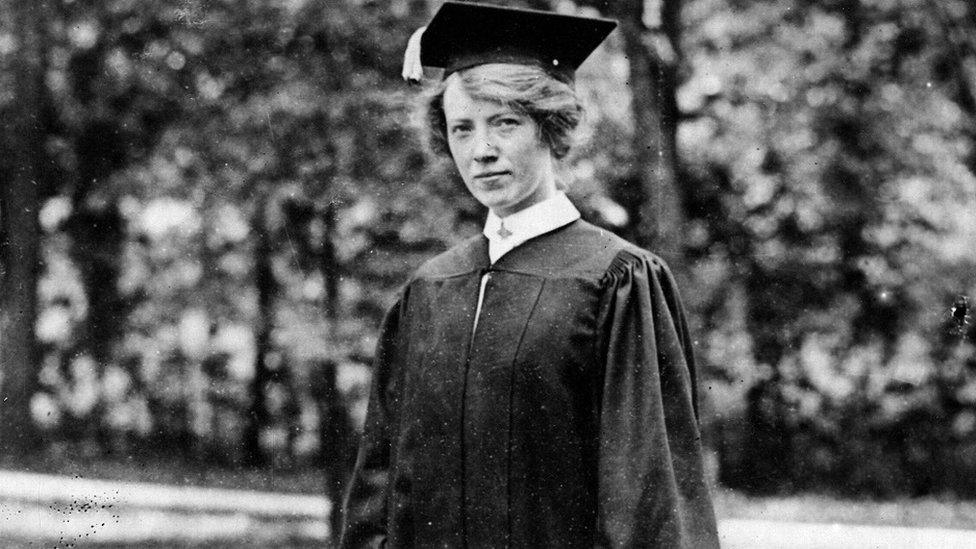
Helen Burnett Wood trained to be a nurse after emigrating to the US
And she was aboard the SS Mongolia along with other American medical personnel when an accident happened the day after it left New York.
One of the ship's guns exploded during a practice drill, sending a shower of shell fragments across the deck which killed the 29-year-old Scot and fellow army nurse Edith Ayres.
American flag
News of her death was reported in The Scotsman and her sister Annie, who also emigrated to the US, later told a Chicago newspaper: "I didn't want Helen to go, but she said if her brothers could risk their lives for Britain, she could risk hers for America."
The American flag in memory of Helen Wood was flown above the US Capitol building in Washington DC this autumn at the behest of the Evanston History Centre.
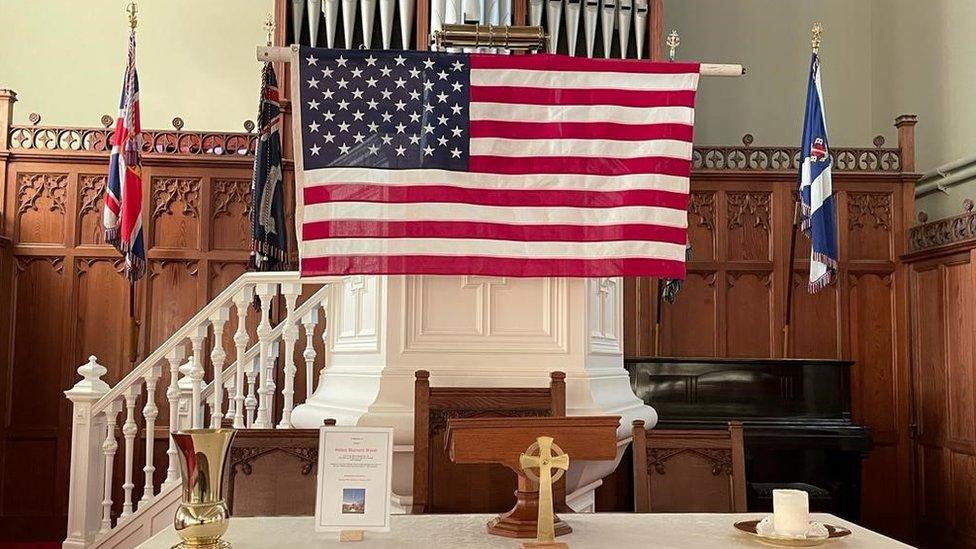
The Stars and Stripes hangs in Northesk Parish Church in remembrance of Helen Burnett Wood
Its director of education is Jenny Thompson, who teamed up with Simon Fairnie, a local historian and member of Northesk Parish Church, to arrange for it to be sent to Musselburgh while he sent her a Saltire flag in return.
Ms Thompson said: "As one of the very first American casualties during the First World War, a woman who volunteered to serve and an immigrant to the US, Helen Wood's story resonates more and more each passing year.
"We have been fascinated by her story for many years and we wanted to do more to connect our two towns and explore the history that unites us."